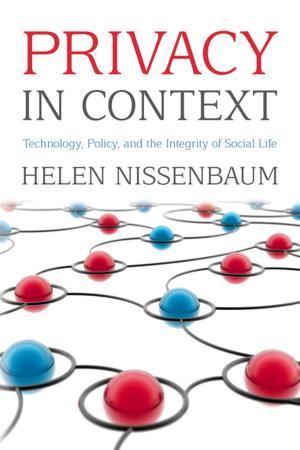Stolen Honor
Stigmatizing Muslim Men in Berlin
Nonfiction, Social & Cultural Studies, Social Science, Discrimination & Race Relations| Author: | Katherine Pratt Ewing | ISBN: | 9780804779722 |
| Publisher: | Stanford University Press | Publication: | May 9, 2008 |
| Imprint: | Stanford University Press | Language: | English |
| Author: | Katherine Pratt Ewing |
| ISBN: | 9780804779722 |
| Publisher: | Stanford University Press |
| Publication: | May 9, 2008 |
| Imprint: | Stanford University Press |
| Language: | English |
The covered Muslim woman is a common spectacle in Western media—a victim of male brutality, the oppressed and suffering wife or daughter. And the resulting negative stereotypes of Muslim men, stereotypes reinforced by the post-9/11 climate in which he is seen as a potential terrorist, have become so prominent that they influence and shape public policy, citizenship legislation, and the course of elections across Europe and throughout the Western world. In this book, Katherine Pratt Ewing asks why and how these stereotypes—what she terms "stigmatized masculinity"—largely go unrecognized, and examines how Muslim men manage their masculine identities in the face of such discrimination. The author focuses her analysis and develops an ethnographic portrait of the Turkish Muslim immigrant community in Germany, a population increasingly framed in the media and public discourse as in crisis because of a perceived refusal of Muslim men to assimilate. Interrogating this sense of crisis, Ewing examines a series of controversies—including honor killings, headscarf debates, and Muslim stereotypes in cinema and the media—to reveal how the Muslim man is ultimately depicted as the "abjected other" in German society.
The covered Muslim woman is a common spectacle in Western media—a victim of male brutality, the oppressed and suffering wife or daughter. And the resulting negative stereotypes of Muslim men, stereotypes reinforced by the post-9/11 climate in which he is seen as a potential terrorist, have become so prominent that they influence and shape public policy, citizenship legislation, and the course of elections across Europe and throughout the Western world. In this book, Katherine Pratt Ewing asks why and how these stereotypes—what she terms "stigmatized masculinity"—largely go unrecognized, and examines how Muslim men manage their masculine identities in the face of such discrimination. The author focuses her analysis and develops an ethnographic portrait of the Turkish Muslim immigrant community in Germany, a population increasingly framed in the media and public discourse as in crisis because of a perceived refusal of Muslim men to assimilate. Interrogating this sense of crisis, Ewing examines a series of controversies—including honor killings, headscarf debates, and Muslim stereotypes in cinema and the media—to reveal how the Muslim man is ultimately depicted as the "abjected other" in German society.















